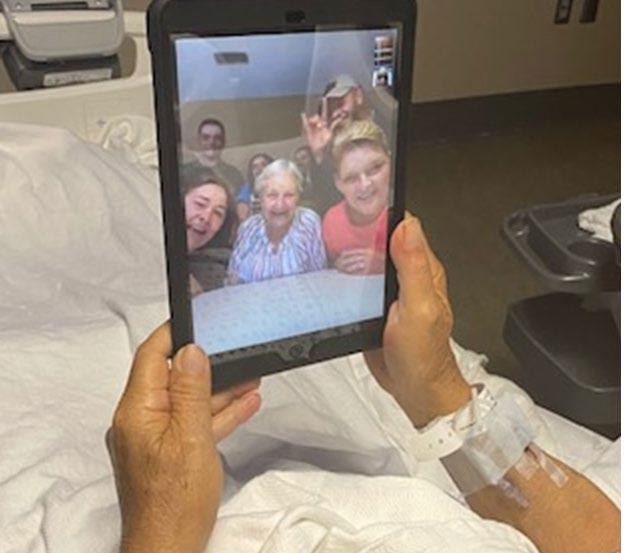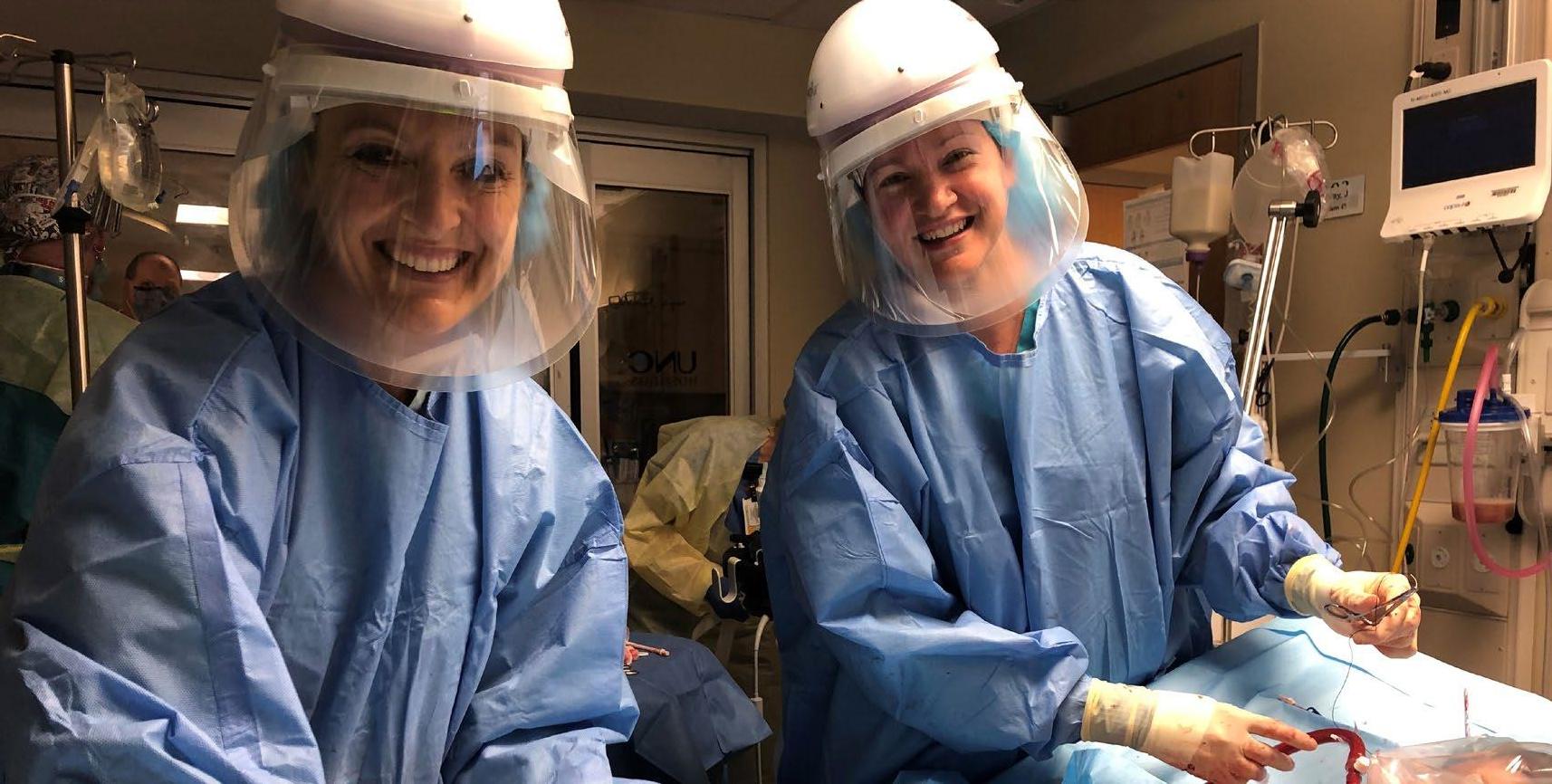
2 minute read
OUR COVID-19 RESPONSE
By David Gerber, George F. Sheldon, MD Distinguished Professor of Surgery & Vice Chair of Clinical Affairs
The COVID-19 pandemic approached like a Cat-4 Hurricane. In mere days faculty and staff in the Department of Surgery adjusted their schedules and went into preparation mode as we were unsure of what the ensuing days and weeks would bring to North Carolina and UNC Health. On the clinical front we watched as hospitals in NYC, Detroit and Washington were overrun with patients requiring critical care support. For our providers this meant that we needed to change our day-to-day practice and adopt a new mission.

Nurse holding up an iPad for a patient to talk with their family.
The first focus area involved readiness of our ECMO, extracorporeal membrane oxygenation, team since it was likely that with the first admissions to the MICU our ECMO providers would be called to provide support. While our medical intensivist colleagues were creating the initial critical care COVID-19 teams the Department of Surgery initiated a similar exercise, creating critical care teams that could provide support in the COVID-19 unit based on our experiences with patients and acute lung injury. Knowing that this would strain our ability to deliver care for non-COVID-19 related surgical conditions we upended our workflow and clinical assignments and created smaller “strikeforce” teams that would alternate shifts across our surgical services. This allowed us to simultaneously care for the patients who needed surgical interventions, provide support for both the COVID-19 unit and the Emergency Dept while also creating recharge periods for the involved providers.

Drs. Joanna Grudziak, Critical Care Fellow, and Trista Reid, Assistant Professor in the Division of General & Acute Care Surgery performing ECMO on a COVID-19 patient.
It became apparent that our approach to direct patient care was dramatically altered for the foreseeable future because of the highly contagious features of the virus. To enhance patient communications with their family members we distributed iPads across several of the surgical intensive care units and acute care areas. Being in the hospital is already a stressful experience; being there alone increases that stress to an extreme level. The iPads allowed us to create portals of communication between patients, families and providers.

Presentation of the iPads to Dr. Jin Ra, the SICU Director for patients to use to communicate with their friends and family while isolated in the hospital due to Covid-19 visitor restrictions.
A blood drive was launched by the Department of Surgery so that we would be prepared for a potential drain on our supply. As March turned into April we realized that this pandemic would be a marathon rather than a sprint. We began developing processes to provide care to our patients in an environment that was safe for them, safe for the healthcare team and could be done with minimal disruption.
Volunteers stepped forward for all of these non-traditional assignments and while the inpatient activity was not as severe as initially feared, we were able to meet the needs of the people who needed us the most – the patients who were admitted to UNC Hospitals.


